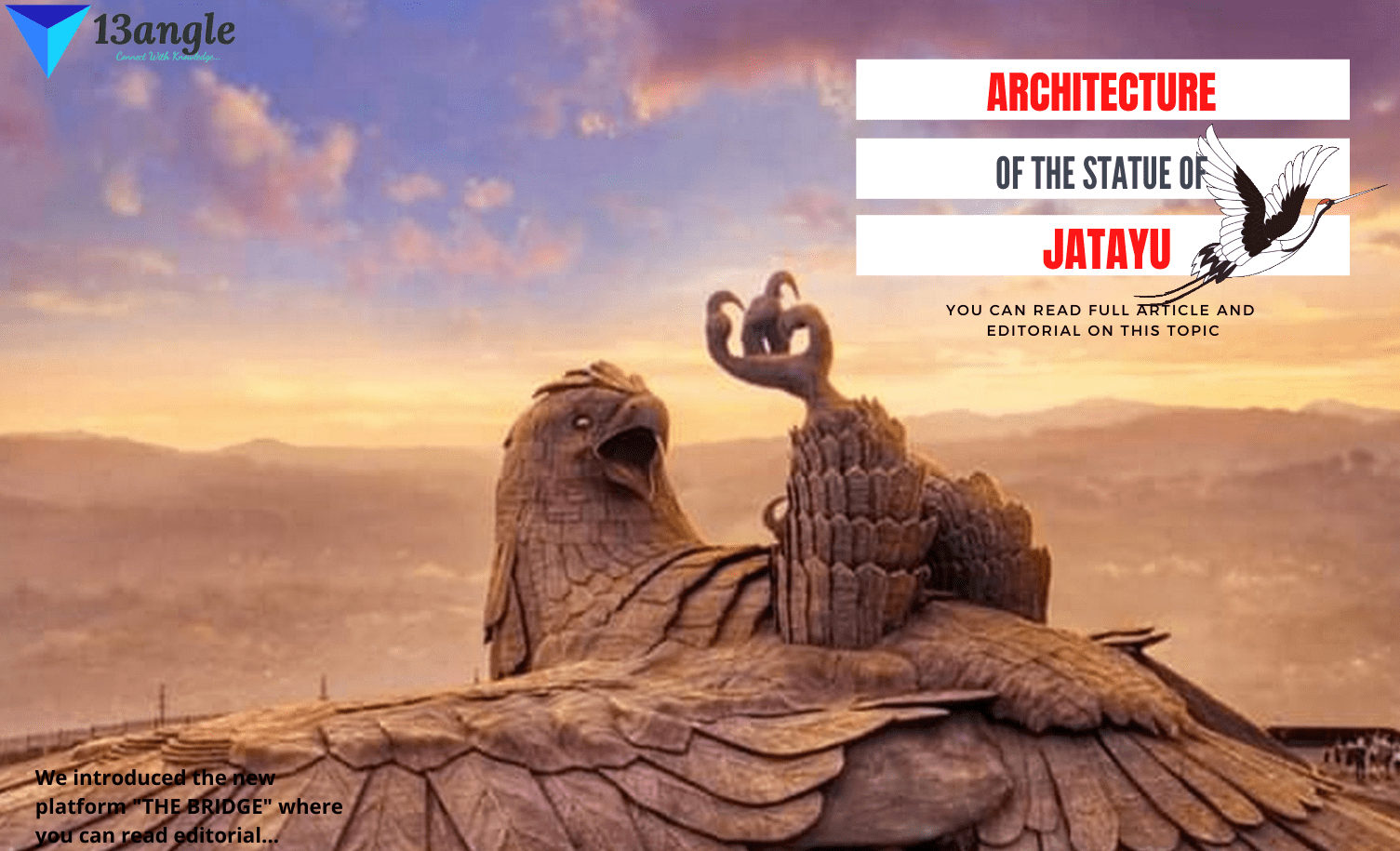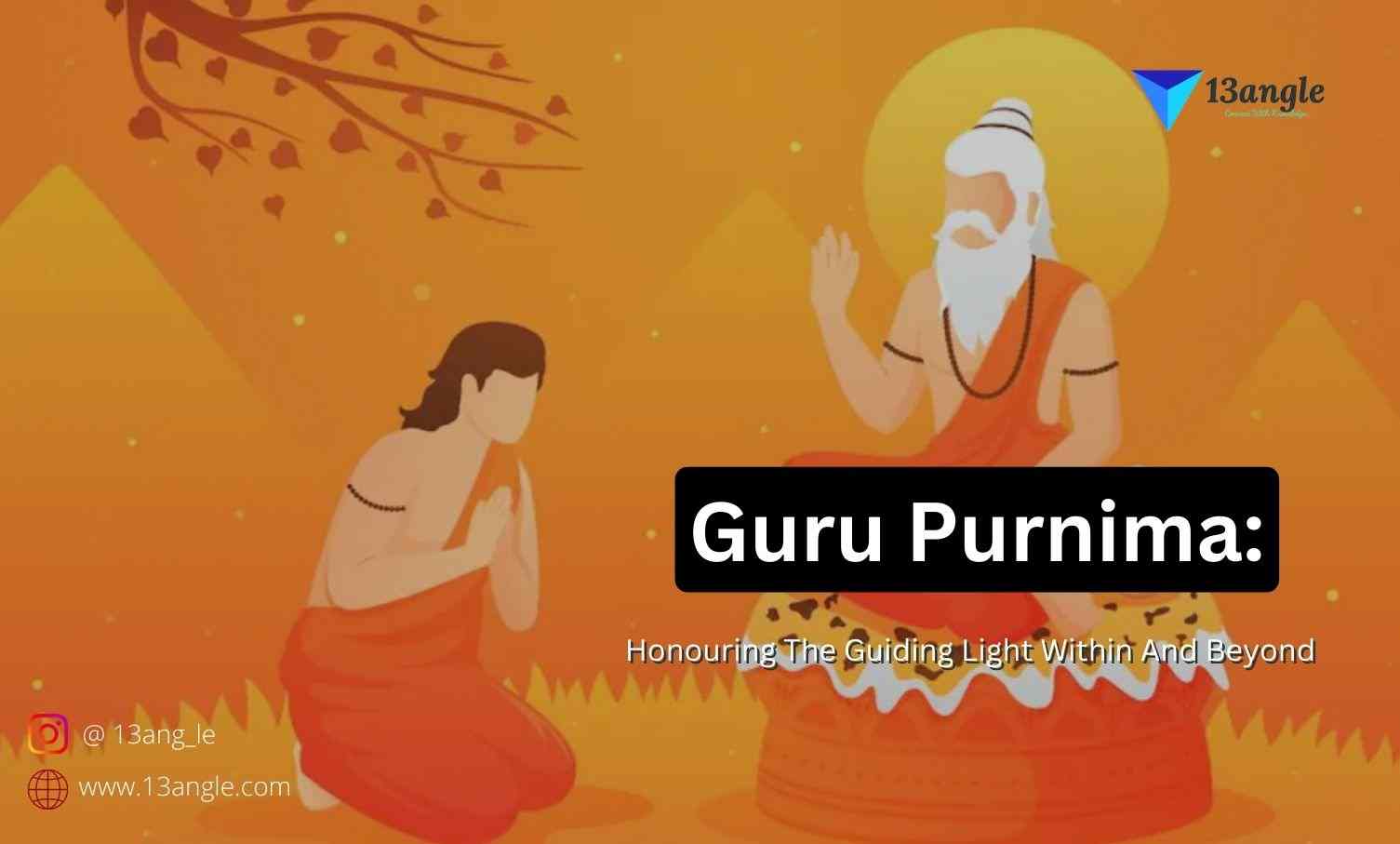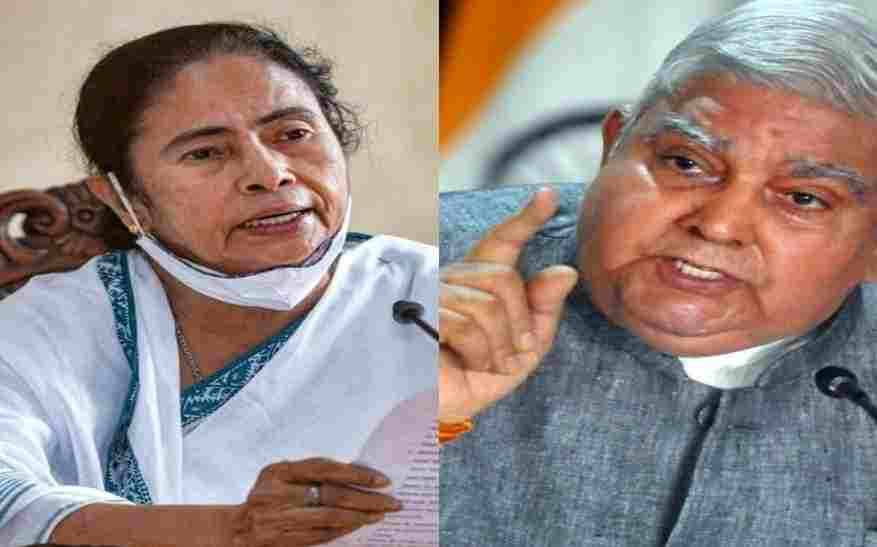
Introduction
- Under Article 85(2) of the Constitution, the President may from time to time prorogue Houses or either House of Parliament. Termination of a session of the House by an Order by the President under the above constitutional provision is called ‘prorogation’. Prorogation normally follows the adjournment of the sitting of the House sine dies. The time lag between the adjournment of the House sine die and its prorogation is generally two to four days, although there are instances when the House was prorogued on the same day on which it was adjourned sine die. It is also not necessary that the two Houses are prorogued on the same day. There have been instances when one House was prorogued on its adjournment sine die while the other House was not prorogued on its adjournment sine die. (141st Session of Rajya Sabha which commenced on 23 February 1987 was adjourned sine die on 20 March 1987 and was prorogued on 24 March 1987. However, the Eighth Session of the VIII Lok Sabha which commenced on 23 February 1987 was adjourned sine die on 12 May 1987. The Speaker, exercising his powers under proviso to Rule 15, reconvened the sittings of the Lok Sabha from 27 July to 28 August 1987, with the result that its Eighth Session which commenced on 23 February 1987 continued till 3 September 1987 and the House was not prorogued during the period of adjournment. The Lok Sabha was prorogued on 3 September 1987.
Procedure
- Either a day before or on the day when the Houses are scheduled to adjourn sine die on the conclusion of their Session, a Note for the Cabinet Committee on Parliamentary Affairs inter alia proposing that the Houses which are scheduled to adjourn sine die on the following day/same day, may be prorogued on their adjournment sine die, is submitted for the approval of the Minister of Parliamentary Affairs. After the approval of the Minister, the approval of the CCPA to the proposal contained in the Note is normally obtained through the circulation of papers. In case the CCPA has not been constituted by that time, a Note containing the proposal on the above lines, after it has been approved by the Minister, is submitted to the Prime Minister soliciting his approval to the proposal (Annex III-I). After the CCPA/Prime Minister, as the case may be, has accorded his approval to the proposal, the Secretary, Ministry of Parliamentary Affairs, through a letter, communicates the decision of the Government in the matter to the Secretary-Generals of the two Houses. (Annexes III-J & K). The two Parliament Secretariats then separately obtain the approval of the President to the proposed date of prorogation of their respective Houses. After the President has accorded his approval, it is notified in the Gazette Extraordinary and simultaneously a paragraph in the regard is also inserted in the Parliamentary Bulletin Part II of the respective Houses informing the members of the prorogation of the Houses.
Dissolution
1. The Lok Sabha is dissolved at the end of its five-year term (automatic dissolution) or by Presidential order. Dissolution terminates the life of the house.
2. The Rajya Sabha is not dissolved. Its members have a fixed term of 6 years, with a third of its members up for elections every two years.
3. The President gave the order for Lok Sabha’s dissolution;
- If authorized by the Council of Ministers, he can give the order even before the end of the five-year term.
- He can also dissolve if the Council of Ministers loses confidence and no party is able to prove the majority.
4, When the Lok Sabha is dissolved, all business including bills, motions, resolutions, notices, petitions, etc. pending before it or its committees lapse.
5. The last session before the Lok Sabha is dissolved is called a Lame Duck session. Only the President can dissolve the House.
History
1. Requirement of Placing Proposal Regarding Prorogation of Rajya Sabha before Cabinet Relaxed
- The Ninth Session of the VI Lok Sabha and 111th Session of the Rajya Sabha was adjourned sine die on 20 August 1979. Subsequently, the Lok Sabha was dissolved by the President on 22 August 1979 and it was felt necessary to prorogue the Rajya Sabha. The Lok Sabha and Rajya Sabha Secretariats were informed of the Government’s decision to prorogue the Rajya Sabha which was prorogued on 24 August 1979 itself. Proposals to prorogue the Rajya Sabha following the dissolution of the IX Lok Sabha on 13 March 1991, the XI Lok Sabha on 4 December 1997, and XII Lok Sabha on 26 April 1999 in similar situations were, however, placed before the Cabinet Committee on Parliamentary Affairs for its approval and after the Committee approved the proposals, the two Secretariats were requested to take further necessary action in the matter.
2. Houses Prorogued with the Approval of Prime Minister
- First Sessions of the XI, XII, and XIII Lok Sabhas and corresponding Sessions of the Rajya Sabha were prorogued after obtaining the approval of the Prime Minister as the Cabinet Committee on Parliamentary Affairs had not been constituted by then. ( Rule 12 of the Government of India (Transaction of Business) Rules – Departure from Rules:- The Prime Minister may, in any case, or classes of cases permit or condone a departure from these Rules, to the extent he deems necessary.)
3. Lok Sabha Prorogued during Recess Period of Budget Session to enable the Government to Promulgate Ordinances
- Ninth Session of X Lok Sabha and 170th Session of the Rajya Sabha was adjourned for recess on 13 May 1994 to meet on 26 Handbook on the Working of Ministry of Parliamentary Affairs 13 June 1994. In order to enable the Government to promulgate Ordinances, the Lok Sabha which was adjourned on 13 May 1994 was prorogued on 23 May 1994. (The Rajya Sabha which was also adjourned on 13 May 1994 was not prorogued.) After the prorogation of the Lok Sabha, the following three Ordinances were promulgated:
The Manipur Municipalities Ordinance, 1994 (promulgated on 24 May 1994);
The Punjab Municipal Corporation Law (Extension to Chandigarh) Ordinance, 1994 (promulgated on 24 May 1994); and
The New Delhi Municipal Council Ordinance, 1994 (promulgated on 25 May 1994). The Bills relating to the above Ordinances were passed during the next Session of the Lok Sabha and in the second part of the same Session of the Rajya Sabha held after the recess.
Prerogative Power
- It is a prerogative power exercised by the Crown on the advice of the Privy Council. In practice this process has been a formality in the UK for more than a century: the Government of the day advises the Crown to prorogue and that request is acquiesced to. Prorogation has both immediate and wider constitutional effects. The former effects are relevant to all circumstances in which Parliament is prorogued. The less immediate effects typically take on a greater significance when the period of prorogation is longer.
Immediate effects of prorogation
- Prorogation brings to an end the proceedings in both Houses for the current Parliamentary session. Unless a specific provision is made (e.g. in the Standing Orders to “carry-over” bills) no business of a previous Parliamentary session may be carried over into the next session. The motions set down and orders made for the business to be considered on future days all fall at Prorogation, as do notices of EDMs and unanswered Parliamentary questions. Select committee inquiries continue, though no committee may meet during Prorogation; statutory periods for Parliamentary consideration of secondary legislation are suspended over Prorogation, but the legislation itself does not fall. A new Parliamentary session can provide procedural opportunities to revisit matters where legislation was unable to progress in a previous session. For example, if the House of Lords withheld its consent for a bill, a new session enables a UK Government commanding the confidence of the Commons to reintroduce the legislation in question. Provided that a year has elapsed since Common’s second reading, the legislation may then reach the statute book notwithstanding Lord’s opposition.
Wider Effects Of Prorogation
- A prolonged prorogation reduces the influence of Parliament over the way the country is governed. While Parliament is prorogued, MPs and Peers cannot formally debate government policy and legislation, submit parliamentary questions for response by government departments, scrutinize government activity through parliamentary committees, or introduce legislation of their own. The Government can continue to make delegated legislation and bring it into force, and exercise its other prerogative powers. The main limitations on what the Government can do during prorogation are that it cannot pass primary legislation and it cannot secure approval for further supply (i.e. public money for government spending). Long prorogations (or requests for them) can give rise to fundamental questions about whether the Government of the day still commands the confidence of the House of Commons and therefore whether it can legitimately continue to govern.
International Examples Of Prorogation
- In other Westminster systems and in recent years, prorogation has occasionally been a more controversial issue. In both Canada and Australia, federal and state Governments have requested prorogations for what might be thought explicitly “political” purposes. In those circumstances, there has arisen a fundamental constitutional question about the relationship between the Premier and the representative of the Crown (if not the Crown itself): whether the latter must always follow the advice of the former. While the answer to this question has depended in part on the specific constitutional arrangements of the country in question, international examples have nevertheless illustrated the competing constitutional interests at stake in all Westminster systems, including that of the UK.
Proroguing In West Bengal Assembly
The order of prorogation is being seen as a result of prolonged conflict between the West Bengal Governor and the state government.
West Bengal Governor Jagdeep Dhankhar on Saturday prorogued the State Assembly on the basis of Mamata Banerjee-led government’s recommendation.
“In exercise of the powers conferred upon me by sub-clause (a) of clause (2) of Article 174 of the Constitution, I, Jagdeep Dhankhar, Governor of the State of West Bengal, hereby prorogue the West Bengal Legislative Assembly with effect from 12 February 2022, the Governor wrote in his order, which he also shared on Twitter.
He also clarified that the order was given “taking note of govt recommendation seeking proroguing of assembly”.
Tweet Of Governor
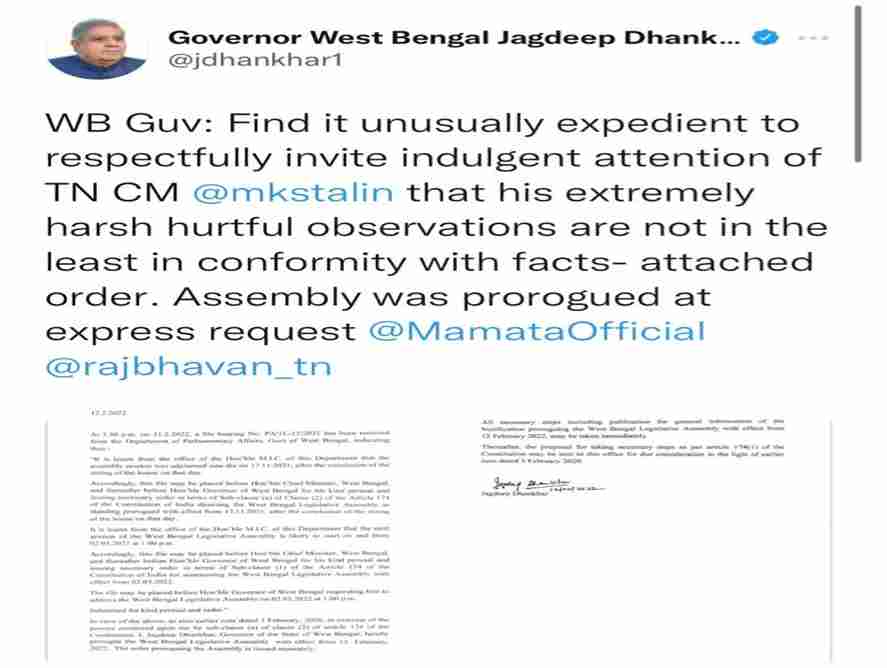
WB Guv: “in view of inappropriate reporting in a section of media it is indicated that taking note of govt recommendation seeking proroguing of assembly, Guv in the exercise of the powers conferred upon him by Article 174 (2)(a) the Constitution has prorogued WBLA “ w.e.f. Feb 12,2022.
Conflict Between CM Mamata Banerjee & Governor Jagdeep Dhankhar
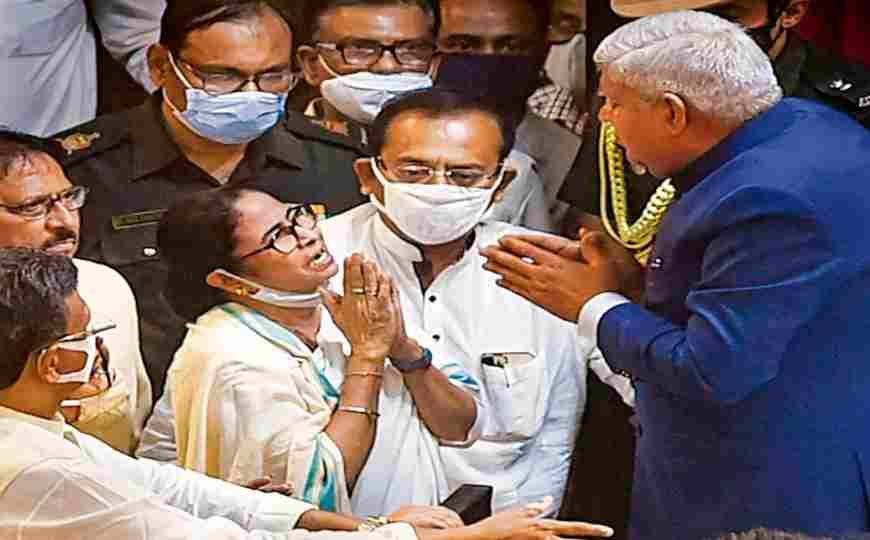
This also comes in the backdrop of a public spat between West Bengal Chief Minister Mamata Banerjee and Governor Jagdeep Dhankhar, which was further intensified as the TMC supremo revealed she blocked him on Twitter because she is “disturbed” by his regular posts against her government.
Notably, TMC Rajya Sabha MP Sukhendu Sekhar Ray had on Friday submitted a Substantive Motion under Rule 170 in the Rajya Sabha, urging President Ram Nath Kovind to remove Jagdeep Dhankhar as West Bengal Governor.
Even as Governor Dhankhar stated that he prorogued the West Bengal Legislative Assembly taking note of the state government’s recommendation, the TMC MP alleged that he “overstepped his constitutional duties”.
“This is an unprecedented move. The Governor has overstepped his constitutional duties because there should be a gap of six months between two sessions of the state Assembly. No Governor of the country has ever done this before. Earlier, he was not giving his consent to several bills and now, he has prorogued the Assembly. This is completely unjust. The state government should move the court against this,” TMC MP Sukhendu Sekhar Ray said, as quoted by IANS.
Trinamool Congress spokesperson Kunal Ghosh, meanwhile, supported Dhankhar’s statement, as he said: “The governor did not take the decision on his own initiative. He has prorogued the Assembly following the recommendation of the Cabinet. There is no confusion in it”, PTI reported.
The order of prorogation is being seen as a result of prolonged conflict between the West Bengal Governor and the state government. Jagdeep Dhankhar has repeatedly alleged that his letters are not replied to, his queries are not answered and his constitutional authority is continuously undermined by the Speaker and the West Bengal government.
He had also alleged that the bureaucracy, including the chief secretary and the DGP, had failed to present themselves despite several reminders.
The Governor has been criticizing the Mamata Banerjee-led government over a host of issues, seeking information and reports regarding appointments to various posts.
Reacting to the development, Bengal BJP president Sukanta Majumdar said: “He has the power to do this and he has exercised his power. This has been done because of the misrule of the state government and the continuous defiant stance taken by the administration.”
Effect Of Prorogation, Dissolution And Expiration On Business Before The House
- Prorogation, dissolution, or expiration bring the sittings of the House and the meetings of committees to an end, and disable the House from further activity. Historically, they also caused all business then before the House to lapse, so that when Parliament resumed for its next session the slate had been wiped clean. This absolute effect has been thought not to be conducive to efficient parliamentary practice, and as long ago as 1886 a committee of the House recommended finding a way to avoid its effects in the case of prorogation.43 A statutory means of avoiding the need for all unfinished business at the end of a session to be reintroduced and commence its passage through the House entirely anew in the succeeding session was first introduced in 1977.44 Prorogation now has no effect on any business before the House or its committees. Such business does not lapse and may be resumed in the following session of the same Parliament.45 (However, a sessional order of the House ceases to have effect on prorogation.) On the dissolution or expiration of Parliament all business then before the House or its committees lapses. Following the dissolution or expiration of Parliament there is no business before the House. However, the House has the power to reinstate by resolution any business that has lapsed when it sits in the new Parliament.46 This power to reinstate, if it is to be exercised, must be utilised in the first session of the new Parliament, but reinstatement does not have to be effected at or by any particular time in that session, nor does it have to be accomplished on only one occasion. The House can deal with reinstatement at any time in the session and on as many occasions as it finds necessary. (See pp 200–201 for reinstatement of business.) The period between the end of a Parliament and the opening of the new Parliament is commonly described as an “interregnum”, although this is not a legal or official parliamentary term.
Top 13 Important Points Of Proroguing In West Bengal Assembly
West Bengal Governor Jagdeep Dhankar on Saturday prorogued the West Bengal Legislative Assembly with effect from February 12.
The development could result in a constitutional crisis and give a fresh twist to already strained relations between the Governor’s office and the State government.
The development came ahead of the Budget Session of the West Bengal Assembly.
The governor had said that there has not been an instance wherein the Assembly has been in session for over a year for proroguing it.
Article 174 of the Indian Constitution states that the Governor shall, from time to time, summon the House or each House of the legislature of the state to meet at such time and place as he thinks fit, but six months shall not intervene between its last sitting in one session and the date appointed for its first sitting in the next session.
Clause 2a of Article 174 states that the Governor may, from time to time, prorogue either house or dissolve the Legislative Assembly. Clause 2 gives him the power to dissolve the house.
West Bengal Chief Minister Mamata Banerjee blocked Governor Jagdeep Dhankhar on Twitter. She said she was “forced” to do so because of his “unethical and unconstitutional” statements and accused him of treating government officials like “his servants”. Dhankhar responded with a series of tweets on the “essence and spirit of democracy” and said the CM’s move was “against constitutional norms”.
Envisaged although as an apolitical head who must act on the advice of the council of ministers, the Governor enjoys certain powers granted under the Constitution, such as giving or withholding assent to a Bill passed by the state legislature, or determining the time needed for a party to prove its majority, or which party must be called first do so, generally after a hung verdict in an election.
There are no provisions laid down for the manner in which the Governor and the state must engage publicly when there is a difference of opinion. The management of differences has traditionally been guided by respect for each other’s boundaries.
State government sources said that Dhankhar prorogued the Assembly on the advice of the state Cabinet.
Reacting to the development, Trinamool Congress spokesperson Kunal Ghosh said, ‘The governor did not take the decision on his own initiative. He has prorogued the Assembly following the recommendation of the Cabinet. There is no confusion in it.’
The prolonged tussle between the state government and the Raj Bhawan reached a flashpoint after Chief Minister Mamata Banerjee recently blocked the Governor on Twitter for purportedly tagging her in all of his posts, criticizing her administration. The Governor has been targeting the state government over a host of issues and seeking information and reports regarding appointments to various posts.
The governor clarified a short while later that the Assembly had been prorogued on the recommendation of the government. He tweeted, “In view of inappropriate reporting in a section of media, it is indicated that taking note of government recommendation seeking proroguing of assembly, Governor… has prorogued the Assembly.”

